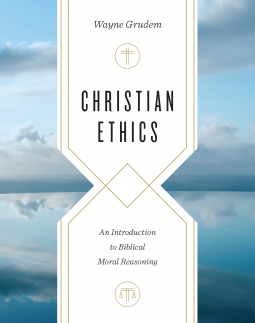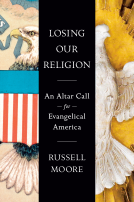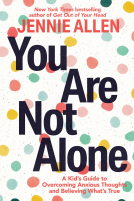
Christian Ethics
An Introduction to Biblical Moral Reasoning
by
This title was previously available on NetGalley and is now archived.
Send NetGalley books directly to your Kindle or Kindle app
1
To read on a Kindle or Kindle app, please add kindle@netgalley.com as an approved email address to receive files in your Amazon account. Click here for step-by-step instructions.
2
Also find your Kindle email address within your Amazon account, and enter it here.
Pub Date Jul 31 2018 | Archive Date Jul 05 2018
Talking about this book? Use #ChristianEthics #NetGalley. More hashtag tips!
Description
Bestselling author Wayne Grudem explains in 42 thorough chapters what the Bible says about ethical questions regarding marriage, government, abortion, and dozens of other issues in this highly practical, biblically based volume on Christian ethics.
A Note From the Publisher
PDF may not be compatible with all devices.
Advance Praise
“Wayne Grudem and I have always been on the same page, both in theology and in theological method. Christian Ethics: An Introduction to Biblical Moral Reasoning has all the excellent features of his Systematic Theology: biblical fidelity, comprehensiveness, clarity, practical application, and interaction with other writers. His exhortations drive the reader to worship the triune God. I hope the book gets the wide distribution and enthusiastic response that it deserves.”
—John M. Frame, Professor of Systematic Theology and Philosophy Emeritus, Reformed Theological Seminary, Orlando, Florida
“This work by Wayne Grudem is the best text yet composed in biblical Christian ethics, and I mean that in several ways. It is more comprehensive, more insightful, and more applicable than any comparable work, and is sure to be a classroom classic. But what I like most is how Grudem unites a scholar’s mind with a disciple’s heart more committed to pleasing Christ than contemporaries and more zealous for strengthening the church than impressing the world.”
—Daniel R. Heimbach, Fellow, L. Russ Bush Center for Faith and Culture; Senior Professor of Christian Ethics, Southeastern Baptist Theological Seminary
“Wayne Grudem has a rare gift in making complex theological and ethical concepts accessible. He also has encyclopedic knowledge and an organized, analytical mind. All this is fully evident in this important book, which provides an invaluable resource to both scholars and practitioners.”
—Peter S. Heslam, Senior Fellow, University of Cambridge; Director, Transforming Business
“Wayne Grudem is a master at cutting into meaty intellectual topics, seasoning them, and serving them up in flavorful, bite-sized morsels for the ordinary person to savor and digest. Don’t let the size of this book deter you! This rich feast will help you figure out what the Bible says about how to live today. Dig in. Taste the wisdom that is sweeter than honey. Eat from the bread that will bring health to your spirit and life to your bones.”
—Mary A. Kassian, Professor of Women's Studies, The Southern Baptist Theological Seminary; author, Girls Gone Wise in a World Gone Wild
“So much in the field of ethics today merely describes the issues and the alternatives. The very idea that there is a ‘right’ answer to anything is anathema. In such a stagnant climate, Wayne Grudem’s Christian Ethics is a breath of fresh air. It demonstrates how the Bible provides specific answers to particular questions. However, this is not merely a compendium of his personal views on issues. Where his views are at odds with other views, even within evangelical Christianity, he explains those alternatives to his readers and invites comparison. Readers are challenged to think and are given the material they need to do so in a God-honoring way. We are in Grudem’s debt for this massive labor of love.”
—John F. Kilner, Professor of Bioethics and Contemporary Culture, Forman Endowed Chair of Ethics and Theology, Trinity Evangelical Divinity School; Director of Bioethics Programs, Trinity International University
“Wayne Grudem has done it again. His Systematic Theology has equipped countless Christians, churches, and pastors in the truth of God’s Word in a clear, accessible, and faithful manner. Now his Christian Ethics promises to do the same in helping us apply God’s Word to our lives. In a time when obedience is often minimized in the name of grace, this book equips us to delight in God’s will for our lives in response to grace.”
—C.J. Mahaney, Senior Pastor, Sovereign Grace Church of Louisville
“Through this encyclopedic treatment of applied ethics, Wayne Grudem shows how his method of whole-Bible hermeneutics can help Christians sort through the thorny ethical issues of the day. From the beginning of life to the end of life, and everywhere in between, Grudem demonstrates what faithfulness looks like in a God-centered, Scripture-centered life. Read with an open Bible and an open heart.”
—C. Ben Mitchell, Graves Professor of Moral Philosophy, Union University, Jackson, Tennessee
“Insightful, encyclopedic, biblical, and distinctively evangelical, this new book from Wayne Grudem is a massive contribution to Christian ethics. It will stand as one of the most important and definitive works of this generation. Readers should engage it chapter by chapter, and then keep it close at hand for continuing consultation.”
—R. Albert Mohler Jr., President, The Southern Baptist Theological Seminary
“This is the best all-around book on Christian ethics I'm aware of, and I plan to require it as the primary textbook for my course on biblical ethics. Grudem writes in his characteristic style: clear, logical, accessible, and (usually!) persuasive.”
—Andy Naselli, Assistant Professor of New Testament and Biblical Theology, Bethlehem College & Seminary; Elder, Bethlehem Baptist Church
“Ethics has always been a complicated endeavor. But with the development of the complications involved in contemporary life, ethics has evolved into a far more difficult subject than most people ever could have imagined. Thank God for Wayne Grudem, who has written Christian Ethics: An Introduction to Biblical Moral Reasoning. Only occasionally does a book so profound make it to the market. My earnest desire is that every pastor in America would read this book. What seems so impossible on the surface is made amazingly simple by Grudem, and literally every chapter is crucially important. May God bless the reading of this book.”
—Paige Patterson, President, Southwestern Baptist Theological Seminary
“This nearly exhaustive treatment of Christian ethics is destined to become the standard evangelical text for many years to come. It is wide-ranging, thoughtful, and unafraid to engage with controversial issues and with those who take a different approach. Regardless of whether one can side with Grudem on each topic, all of us can benefit immensely from his lucid presentation. There is hardly an ethical issue he doesn’t address, and I will be consulting his work regularly for wisdom and guidance on a variety of matters that the church faces in a morally decadent and confused world. Highly recommended!”
—Sam Storms, Senior Pastor, Bridgeway Church, Oklahoma City, Oklahoma
Available Editions
| EDITION | Other Format |
| ISBN | 9781433549656 |
| PRICE | $59.99 (USD) |
Average rating from 9 members
Featured Reviews
 Zachary G, Reviewer
Zachary G, Reviewer
As someone who has just completed a university course in Christian Ethics, I was keen to read Grudem's new book. I was not disappointed. He helpfully begins by giving an introduction to what Christian Ethics is, and explains why one can look to the Bible to develop a moral framework. The topics that Grudem covers are expansive, and anyone seeking to understand a Christian viewpoint on a certain ethical issue will find this book extremely helpful.
 Rosa S, Educator
Rosa S, Educator
I very rarely give such a low review, and then only if I fundamentally disagree with the premise of a book. Here's an example of why I cannot recommend this.
By the time I got to Grudem's views on the roles of men and women (and the way the author twists scripture to fit American patriarchal culture), I was ready to give the book one star.
I will leave the reader with this one example, though others caught my attention. Anyone who claims authority to teach believers how to think, and in the same breath says God voluntarily becomes our subordinate as our "helper" in the Old Testament - for whatever logic or proof of his ethics and gender presuppositions - is a danger to young minds. Making up theologies is a peculiar pastime of academics; it's their job to think deeply. Yet Grudem's statements about the Son being "eternally subordinate" to the Father (not just in his incarnation) give an indication of cultural hierarchy that goes beyond the biblical revelation and mandate.
To prove his point on male headship in every area, Grudem refuses the clear meaning of Paul's instruction of "mutual submission." He extends his model of hierarchy to create a subordinate chain of authority in the family, with the wife slightly higher than the children in a serious case of scriptural re-wording.
He excludes the possibility of husbands and wives as peers, serving in the gospel, despite scriptures about the empowerment of the Spirit on male and female, Jew and Greek, etc. All are empowered for ministry, without limits as to who can serve. So, can a Greek preach to a Jew? Can a slave preach to a master? Can a woman preach to men? Grader would say no to the latter and perhaps to the second as well, since his hierarchy is so ingrained. Women are only advisors to men, mothers to children, and therefore constrained against serving in full gifting and capacity.
In addition, Grudem completely ignores the Pauline practice of biblical inclusion (i.e. instructions to female prophets in the church), relegating women to exercising their spiritual gifts only within the chain of command "below" them. Paul's instructions for orderly worship (for example, in 1 Cor 11:2-16; 14:26+), include men and women and offer a truer model of what was intended. Paul's practice contrasts with the patriarchal models invented by the time of Chrysostom and existing until Grudem. (Chrysostom acknowledged that the practices of his day differed greatly from the New Testament; Grudem is even more extreme, yet claims to be true to scriptures.)
Don't buy it unless you want to set back your understanding of a biblical worldview by 100 years. Instead, use current commentaries with biblical scholarship of how the Spirit shaped the practices of the New Testament Church.
 Chris L, Reviewer
Chris L, Reviewer
How Should Christians live? That is a good question in our day and time. What should Christians do when facing a moral dilemma? As our culture continues to be hostile toward Christian beliefs, we must be people who stand on the word of God and speak in truth.
Christians have been known as people with moral principles even though some may not agree with them. In our day and age, there is an increase awareness of what our ethics should be. Wayne Grudem has written a brand new book just for such a time as this as Christians need to know what we stand for and where it comes from. The book is appropriately titled, Christian Ethics: An Introduction to Biblical Moral Reasoning.
In this book, Grudem defines what our morals are as Christians and the source of them is from God. Where we get our morals is from the Bible. The Bible is final authority for faith and practice for the believer which includes ethics. The goal of everything we do including living a moral live is to give glory to God. This world will never understand why we do the things we do or live the way we live, but we are not here to please them. We are here to please our Father who does not change even though the culture we live in does.
The rest of the book deals with how we live in relationship with God by not having no other gods before Him and how we live in relationship to one another. The Ten Commandments shows us that we must honor God and care for one another which Jesus say loving God and others sum up the whole law. How do we care for one another? First, we respect those in the authority which include our mother and father and the civil government. Grudem does state if anyone in authority challenges God's authority, we should not listen to them.
We should also protect human life which Grudem does get controversial as he mentions war and capital punishment. Grudem addresses marriage and how the Bible, not society, defines marriage. Grudem also deals with our moral standards concerning work, retirement, and recreation. There was so much Grudem covered that it would take me all day and a long page to write about. I encourage you to pick up a copy of this book and challenge yourself with what Grudem says.
 Sergiu P, Reviewer
Sergiu P, Reviewer
This is a very comprehensive book, and it is a very interesting read. There are many sections that are very good, such as the interaction with Geisler's philosophy, etc. There are also some sections that are as bad as it can get, for example the section on which commandments are culturally relative. There are others as well, but I will use this one to substantiate my point.
The author is a biblical theologian, so I would've expected him to man up and be faithful to the text, working hard to get to the true intention of Paul, but he does not do this. Grudem claims that the commandments which are physical symbols in the NT are culturally relative, and that anyone reading about them would instinctually know this. First of all, that is not an argument. We misinterpret many things instinctually. 2nd of all, he uses this non-argument to justify claiming that footwashing, holy kiss, and headcovering are relative. This does not work, since the lords supper and baptism would have to be deemed relative according to his criteria as well, but on top of this, lets take the one example he gave which is for certain not relative: headcovering. He says that in those days headcoverings were used to show who was a woman. This is not true, Paul says long hair was used to distinguish women from men. Then he says maybe it was to show who's married. This is not true, since we know from history that they used wedding rings for that. We could go on with this, but looking at the text, as a biblical theologian ought to do, we see that Paul says that 1. all the churches practice headcovering, so its not cultural. 2. He says that it is practiced because woman came from man, which still applies today. Finally, because of the angels, who still participate in the worship services today. The point is that he did a sloppy job and should do better in an ethics manual.
 David R, Reviewer
David R, Reviewer
When I first got this book I was intimidated by the length and breadth of it. However, after I started reading the book I realized that it is very accessible. Grudem organizes his systematic review of Christian Ethics based on the 10 Commandments. All ethical theory can be summarized by the ten words of God spoken to Moses on Mt. Sinai.
Grudem takes a Kantian view of ethics and consistently holds that the moral imperative set forth in Exodus must be literally followed. He even goes so far as to hold that a Christian hiding a Jew from Nazi soldiers must not lie in order to protect the innocent victim. This theory is somewhat strained, but he does not want to open the door to situational ethics or moral relativism. Even when I thought he was too rigid, I respected his position and could follow his reasoning.
This book would suitable for a graduate level class in seminary or a Sunday school class of teenagers. I was very impressed with how he brought difficult concepts down to a level that could be understood by anyone. Each chapter deals with a distinct ethical issue. He bases his analysis on Biblical passages and commentary from the great theologians of the past and present. At the end of each chapter, he includes questions for discussions and a hymn.
I was pleasantly surprised and highly recommend this work.
Thanks to NetGalley and Crossway for providing a pre-publication edition of this book in exchange for an honest review.
 Reviewer 325206
Reviewer 325206
INTRODUCTION
“But be doers of the word, and not hearers only, deceiving yourselves…For as the body apart from the spirit is dead, so also faith apart from works is dead” (Jas. 1:22, 2:26, ESV). With these words, James reminds Christians that saving faith in the Lord Jesus Christ is not merely about knowing and mentally assenting to theological principles found in the Bible. Rather, saving faith is demonstrated through an obedient doing of the law of Christ in all the circumstances the LORD brings forth. Saving faith results in applied theology. In Christian Ethics: An Introduction to Biblical Moral Reasoning, Wayne Grudem writes to aid Christians in practically applying our lives by faith to the Bible’s ethical teaching.
SUMMARY
Grudem defines Christian ethics as “any study that answers the question, ‘What does the whole Bible teach us about which acts, attitudes, and personal character traits receive God’s approval, and which do not?’” (37). From this definition, Grudem turns to the Bible to lay out a Christian ethical framework. In the introductory section, Christian ethics is rooted in the moral character of God as revealed in the Word of God with the intended fruit being joyful lives of obedience pleasing to God. Having also touched on important issues such as factors in making ethical choices, the role of the Old Testament for Christian living, and apparent moral conflict in obeying God, Grudem spends the final thousand pages addressing a wide array of ethical issues pertaining to God’s honor, human authority, human life, marriage, property, and purity of heart.
CRITICAL EVALUATION
Christian Ethics is unique in that the scope of the book is so broad. Not only does he address sexuality, marriage, and edge of life issues as are commonly found in evangelical ethics books, Grudem also includes lengthy discussion regarding civil government, environmental, racial, personal property/finance stewardship, and business ethical matters, to name a few. Over thirty-four topics are addressed in these pages, which makes this book substantially more comprehensive in subject matter than the handful of evangelical ethics textbooks currently sitting on my shelf.
One of the most helpful chapters of the book is chapter 8 on the Christian’s relationship to the Old Testament Law when constructing a “whole-Bible” ethic (23, 37). Grudem correctly states that Christians must follow the process of “(1) recognizing that the Mosaic covenant in its entirety has been terminated; (2) recognizing the specific differences between the old and new covenants; and then, in light of those differences, (3) seeking wisdom for life from the whole of the Old Testament, including all of its laws” (251). In other words, Christians are no longer bound by the old covenant and its stipulations because it has been fulfilled and abolished in Jesus with the presence of the new covenant; yet, wisdom can be found therein (Matt. 5:17-18, Gal. 3:24-25, Eph. 2:15). With this correct understanding, Christians are freed from having to unnecessarily divide the Law into civil, ceremonial, and moral categories in order to justify what old covenant principles (not to be confused with pre-Mosaic instruction) are normative on this side of the cross.
One critique is that Grudem views ethics primarily through the lens of systematic theology to the neglect of biblical theology. For any given topic, Grudem pulls biblical texts and systematizes them to extract principles. The principles are then used to determine particular applications of character and action that are and are not in line with the moral character of God, the basis of Christian ethics. While a systematic approach is helpful, a biblical-theological approach is also necessary noting that God has chosen to reveal himself through the Bible in the form of a story, not a systematic textbook. All humans live in light of the stories we tell ourselves, some of which are true and others false. A biblical-theological section on the big picture role of Christian ethics as righteous living in the kingdom of God under the rule of Christ would help Christians better ground Christian living to the redemptive story in which we live so that we might more fully understand the role, eternal purpose, and goal of Christ-centered ethics.
In chapter 4, Grudem accurately declares that Christian ethics is concerned with Christlike character in addition to right actions. Grudem goes on to say that part of the newness of the new covenant is in the new character the Spirit produces in Christians (244-245). This book would be strengthened if these new covenant, Christlike virtues served as more of a basis for the ethical conclusions that are drawn. For example, chapter 32 on divorce could have been enhanced if the virtue of Christian forgiveness, grounded in the gospel of Jesus Christ, was brought into the equation as a primary lens through which Christians should approach the issue of divorce, particularly noting that Matthew 18 concludes with a long section on forgiveness before moving to divorce in Matthew 19.
Finally, more discussion on complementarianism versus egalitarianism would be beneficial. Grudem is a complementarian, and he limits complementarianism to the home and to the church. However, there are varying degrees of complementarians. Some say that complementarianism should be restricted to the home and the church while others say that complementarianism should extend more broadly into culture. An overview of some of the nuanced perspectives along the spectrum would help evangelical Christians better understand that not all complementarians are in full agreement while helping us think more carefully about how to live out God’s design for men and women in all aspects of life.
CONCLUSION
Covering so much ground in one work, Christian Ethics will likely be a widely used resource for evangelical ethics for years to come though, no doubt, there will not be unanimity with every conclusion reached by Grudem. Practical, thought-provoking, expansive, and Bible-rooted, this work will certainly challenge contemporary evangelicals to live all of life in line with gospel ethics. May this book increase our joy as we Christians live obedient lives pleasing before our God in Christ.
 Conrade Y, Reviewer
Conrade Y, Reviewer
What are the basis for moral reasoning? What are the differences between morality, immorality, and amorality? Are the Ten Commandments still relevant today? Absolutely! Indeed, as society becomes more secular and moral reasoning replaced by amoral philosophies, we become more confused and less convicted about what is the right thing to do. Things may be legally right but ethically wrong. How then do we do our part to retain basic human decency in the things we do or say? Without any guide, we are left to our own devices and we are prone to make serious misjudgments about what we ought to do in the light of societal pressures and what basic norms should be. This is especially so for Christians who are increasingly been challenged by the world to give a defense of the gospel and the basis for moral reasoning. We need help in order to structure our thoughts and to understand the Bible's principles for moral reasoning. Here we see the brilliance of Bible teacher and theologian, Wayne Grudem, who guides us through the basics of understanding what ethics was; what the Bible teaches; the purpose of ethics; the need for God's laws in society; and many fundamental elements on how we should anchor our ethical framework based on biblical principles. In a clear and concise manner, he leads us through each of the ten commandments and shows us the relevance of the ancient laws for modern times. Most crucially, he tells us why we follow ethical principles. That is because of the glory of God. He explains the different kinds of ethics that we have today: Deontological; teleological; relativism; virtue ethics; among the various normative ethics, and compares them with biblical ethics. He cautions us as we study Christian Ethics not to presume we could "improve upon" biblical ethics. The reason why we study is because we want to better know God's will for us. This is perhaps the key point to take home as we read this book. For reference, the ten commandments are:
No other gods before the LORD
No graven image
No misuse of the LORD's Name
Keep the Sabbath
Honour your parents
You shall not murder
You shall not commit adultery
You shall not steal
You shall not bear false witnesses
You shall not covet.
The book is framed as follows:
Part One - Ethics for Today
Part Two - Protecting God's Honour (Commandments 1-4)
Part Three - Protecting Human Authority (Commandment 5)
Part Four - Protecting Human Life (Commandment 6)
Part Five - Protecting Marriage (Commandment 7)
Part Six - Protecting Property (Commandment 8)
Part Seven - Protecting Purity of Heart (Commandments 9-10)
Grudem covers a lot of ground. Part One sets the stage for the relevance of biblical principles for modern ethics. He deals with questions surrounding Christian ethics and the ultimate basis for ethics. He defines Christian Ethics as:
"any study that answers the question, 'What does the whole Bible teach us about which acts, attitudes, and personal character traits receive God's approval, and which do not?'"
He boldly declares that the Bible is essential for our everyday living. Knowing the many different modes of opposition by an unbelieving society, he argues that the commandments should still be taught regardless of opposition. The way forward is to do it gently and sensitively. In fact, the bigger concern is about Christians who are becoming more apathetic about the ethical state of the world today. So Grudem goes to list down the authority, the clarity, the necessity, and the sufficiency of Scripture for daily living. This is important because without it, this book would be meaningless. Those who reject or ignore the Bible would be doing so at their own risk. Each chapter is structured in a way that makes this book an excellent textbook for students of ethics and Church school curriculum. There is the explanation of the meaning of the commandment followed by the rationale behind it. He dives into the nitty-gritty of both ancient and modern contexts before showing us that the commandment is still crucial for proper functioning of any society. This is followed by a list of probing questions for personal application and a list of resources for further research. One interesting feature is the placement of hymns at the end of each chapter to remind us that Christian Ethics is not simply about good works, it is about godly worship. It is about honouring God. It is about dependence on Him to help us do the things that bring glory to His Name.
My Thoughts
First, this is an excellent primer for studies about Christian Ethics. Grudem is systematic about laying down the basics about the meaning of the commandments and the basis of how human ethics grow out from. Students will find a huge collection of topics that are meaningful for our society today. Even though Grudem's background is more conservative, the format and approach can be easily understood which is a key criteria for good textbooks. As an introduction, readers are made aware of the many different perspectives out of any one topic. He is not afraid to make known his views. At the same time, he opens the topic for us to consider the different perspectives.
Second, Grudem is not afraid to deal with controversial or contentious issues. There are many topics of interest such as capital punishment; suicide; racial discrimination; aging and death; marriage; birth control; divorce and remarriage; homosexuality and transgender issues; financial stewardship; corporate thefts; environmental protection; and many more. Though one does not have to agree with everything the author says, most of us would agree that the topics highlighted are of high relevance for our society today. The value in this book is not the opinion expressed per se, but the methodical steps to explain what the ethical issue is and how to go about understanding God's point of view and ours.
Third, Grudem makes not apology for his theological stand. He readily compares and contrasts different opinions without compromising his own beliefs. At the same time, he puts forth the reasons for differing with dissenting views. One of the ways he does so is to make a difference between biblical principles and personal opinions. Grudem does not compromise on the former but gives ample room for differences in opinions.
I would recommend this book for personal study of Christian Ethics as well as for preachers wanting to preach a series on the Ten Commandments. This resource is an essential resource for any library collection.
Wayne Grudem is Professor of Theology and Biblical Studies at Phoenix Seminary in Phoenix, Arizona. He has published 22 books and is also the General Editor for the ESV Study Bible, published in 2009.
Rating: 4.75 stars of 5.
conrade
This book has been provided courtesy of Crossway Publishers and NetGalley without requiring a positive review. All opinions offered above are mine unless otherwise stated or implied.
Readers who liked this book also liked:
Harold Earls, IV; Rachel Earls
Biographies & Memoirs, Parenting, Families, Relationships















